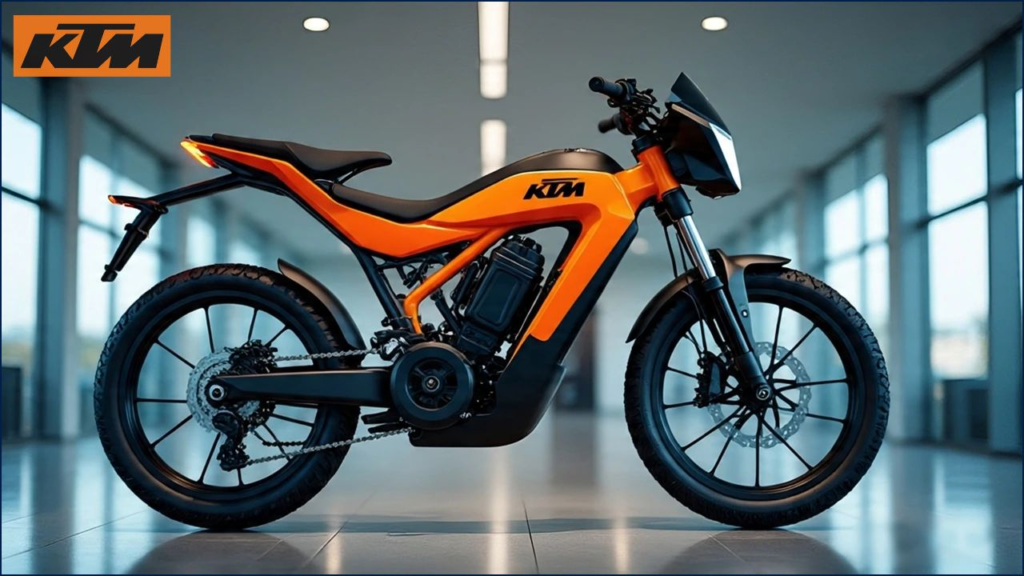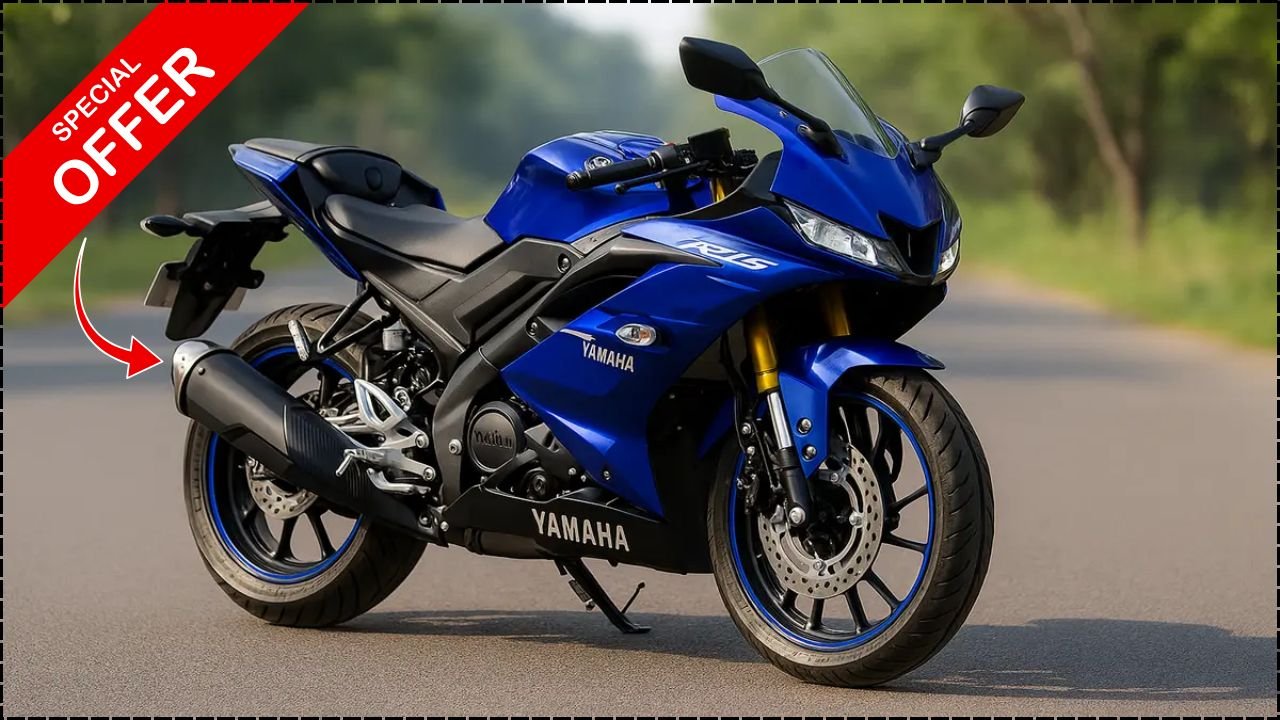
A viral online claim about a KTM Electric Cycle offering a 220-kilometre range and fast charging for just ₹1,499 has prompted widespread public interest and concern among experts. No official confirmation from KTM India has been issued as of Friday, raising doubts about the authenticity of the offer.
Table of Contents
KTM Electric Cycle: A Viral Claim With Limited Verification
The KTM Electric Cycle story began circulating on social media platforms earlier this week, with posts promising extraordinary performance at an unprecedented price. Viral ads claim the e-bike can run 220 km on a single charge and be purchased for ₹1,499 through a limited-time “dhamaka offer.”
The posts, however, do not include official dealership addresses, model names, or manufacturing details. None of the major automotive or technology publications have verified these claims, and KTM India has issued no announcements.
A KTM India customer service representative stated, “The company has not launched any electric bicycle model in India at this time.”
No Official Product Matches the Claim
KTM’s official website lists multiple electric bicycles in its global product range, including the Macina Ride and Macina Kapoho series. These models cost between ₹1.7 lakh and ₹4.4 lakh in international markets. They offer ranges between 80 km and 180 km per charge — far below the 220 km figure being promoted online, and at prices far higher than ₹1,499.
How the Rumour Spread Online
The claim appears to have originated from several unverified websites using KTM’s logo and marketing language. These websites ran sponsored posts on Facebook, Instagram, and YouTube, encouraging users to “book now” by paying a small fee.
Analysts at CyberPeace Foundation, a cybersecurity think tank, tracked at least three fake domains mimicking official KTM sites. “They use convincing branding, countdown timers, and fake testimonials to create urgency and mislead users,” said Raksha Mehta, Senior Analyst at the foundation.
Regulatory Context: Why Real Launches Follow Strict Rules
Under India’s current electric mobility framework, any company launching an electric cycle or e-bike must comply with Bureau of Indian Standards (BIS) certification, obtain type approval, and, if subsidies are involved, register under the Faster Adoption and Manufacturing of Electric Vehicles (FAME-II) scheme.
According to the Ministry of Heavy Industries, no such KTM model has been registered or approved under these frameworks. Regulatory filings for new models are typically visible weeks before any launch, especially for major brands.
“Such an offer would require not only a new model registration but also significant disclosure under EV safety norms,” said Dr. R.K. Singh, a senior official with the Bureau of Indian Standards. “The absence of any documentation is a strong indication this offer is fraudulent.”
Price and Technology: Why ₹1,499 is Unrealistic
Industry experts note that the cost of manufacturing an electric bicycle with a 220 km range is substantially higher than the advertised amount. The battery alone would likely cost over ₹25,000, according to estimates from the Bureau of Energy Efficiency (BEE).
“Even with heavy subsidies and low-cost manufacturing, no company can deliver a 220 km e-bike at that price point,” said Dr. Anil Verma, Senior Researcher at the Indian Institute of Technology (IIT) Delhi’s Centre for Electric Mobility. “Such claims violate basic economic and engineering logic.”
Market Comparison: What Real Low-Cost E-Bikes Offer
Current low-cost e-bikes and electric cycles in India — including models from Hero Lectro, EMotorad, and Nexzu Mobility — start at around ₹25,000 and offer ranges between 25 km and 60 km. Premium models can cost up to ₹1 lakh, with longer ranges and better performance.
| Brand | Model | Price (₹) | Range (km) | Charging time (hrs) |
|---|---|---|---|---|
| Hero Lectro | C1 | ₹28,999 | 30 | 4 |
| EMotorad | T-Rex | ₹42,000 | 45 | 4–5 |
| Nexzu Mobility | Roadlark | ₹55,000 | 60 | 3.5 |
| KTM (official EU) | Macina Ride | ₹1.7 lakh | 80 | 3 |
The disparity between these prices and the alleged KTM offer is stark.
Consumer Impact: Stories from the Ground
Ravi Kumar, a 27-year-old IT professional from Pune, came across one of these ads on Instagram. “It looked legitimate. The site had the KTM logo and even customer reviews,” he said. “I almost paid the booking amount but decided to call a local KTM dealer first. That’s when I realised it was fake.”
Similarly, Priya Menon, a college student in Bengaluru, reported the ad to cybercrime authorities after receiving multiple suspicious payment links.
These stories reflect how fraudsters exploit growing EV interest in India to target unsuspecting consumers.
Cybersecurity Tips: How to Spot Scam Offers
Experts recommend the following steps to verify online offers:
- Check the official company website and authorised dealer listings.
- Look at the URL carefully — fake sites often use extra characters or unusual domains.
- Avoid offers that require instant payments or booking fees.
- Check if the company name is listed with BIS or FAME-II.
- Report suspicious links to the National Cyber Crime Reporting Portal.
India’s EV Market in Global Context
India is one of the world’s fastest-growing electric mobility markets. According to the Society of Manufacturers of Electric Vehicles (SMEV), over 1.7 million EVs were sold in India in 2023–24, including two-wheelers and e-cycles.
Globally, e-bike adoption has grown significantly in Europe, where KTM has a strong presence. However, even in these markets, no e-bike offering a 220 km range is sold at such a low price.
“Scams like this reflect both strong consumer demand and low digital literacy regarding EV technology,” said Amit Khatri, an EV industry analyst at PwC India.
What Happens Next
Consumer groups are calling for stronger oversight of online advertisements related to electric vehicles. The Advertising Standards Council of India (ASCI) said in a statement that it is “monitoring such deceptive advertisements” and will issue notices to platforms hosting misleading content.
Meanwhile, law enforcement agencies are urging citizens to exercise caution and report suspicious schemes immediately.
Supertech Expands MAXX Autos and Zapster Scooters: Launch Discounts and Savings Announced
Conclusion
The viral KTM Electric Cycle offer has exposed a dangerous gap between consumer enthusiasm and scam awareness in India’s rapidly growing EV market. No credible evidence supports the claim of a ₹1,499 long-range electric bicycle, and experts agree it is almost certainly fraudulent.
For consumers, the lesson is clear: trust official sources, not viral deals.

















